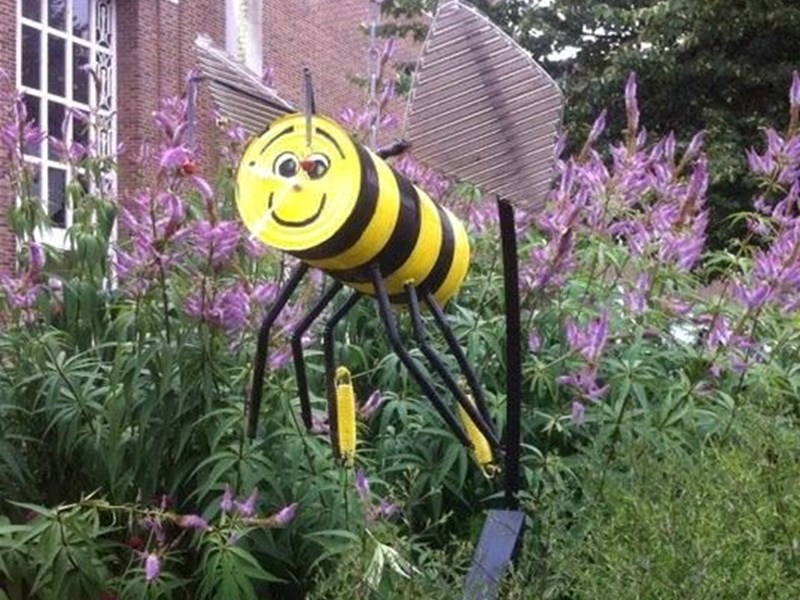A conservation project based in Tunbridge Wells plans to recruit keen gardeners in its ongoing campaign to save the bee.
The Cross Pollination Project was officially launched last week (June 27) at an event in Grosvenor & Hilbert Park, after being awarded a £47,000 grant by the Heritage Lottery Fund.
Over three years the project plans to build six gardens around Tunbridge Wells, with the first scheduled to be created in Dunorlan Park this summer.
The gardens will be filled with bee-friendly plants such as clovers, vetches and trefoils as these are rich in pollen and nectar – essential sustenance for bees.
Project coordinator, Cally Fiddimore, emphasised the need for volunteers to help construct the gardens, as well as observers who can collect data about the types of bees that are being tempted in.
But she wants the project to go beyond these public gardens, hoping they will kick-start a wave of bee-friendly gardening throughout the town.
“We want to teach people that creating a bee-friendly habitat is not difficult, not expensive and still ensures a very attractive garden.”
She also hopes to spread the message to the younger generation by encouraging schoolchildren to get stuck in with developing the gardens by offering workshops in various activities, including beekeeping.
The decline in the bee population has far-reaching implications and therefore should be something that concerns us all, argues Dr Ian Beavis, curator at Tunbridge Wells Museum and Art Gallery.
“Bees are vitally important in the natural world, because of their role in the pollination of most plants. They are indispensable for human existence, as the majority of our food crops require pollination by bees.”
He puts their decline down to the overuse of pesticides as well as the destruction of flower-rich grassland, 97% of which has been lost in the UK since 1930.
If you are interested in getting involved with the Cross Pollination Project, the public is encouraged to go along to the Planting Day that is being held at Dunorlan Park on Friday July 8 from 10am-3pm.
BEE-FRIENDLY FLOWERS
- Cat’s ear (Hypochoeris radicata)
- Clovers (Trifolium)
- Vetches (Vicia)
- Trefoils (Lotus corniculatus)
OTHER INTERESTING FACTS
- There’s been a massive decline in the number of bee hives in the UK – nearly 75 per cent in the past century.
- There are 250 species of bees in the UK. Of these 24 are the larger bumblebee, the rest are solitary bees as well as one single honey bee species.
- Two species of bumblebee have become extinct in the UK since the start of the 21st century:
- Cullem’s bumblebee (Bombus cullumanus), was last recorded in 1941.
- The Short-haired bumblebee (Bombus subterraneus), was last recorded in 1988.
- It is estimated that bees contribute over £400million to the UK economy, primarily through their role in food production.








